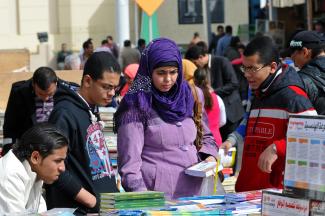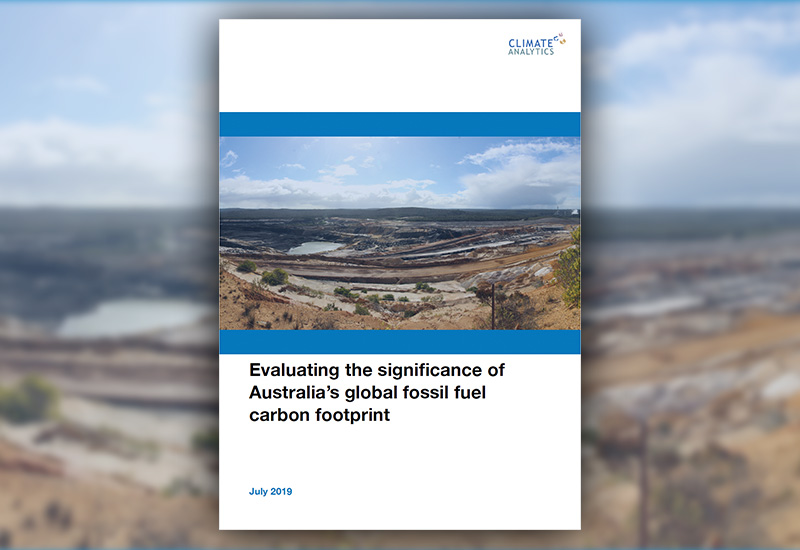Arabic language
A better understanding

A taxi driver in Cairo once spoke only Modern Standard Arabic with his passengers for an entire day. He claimed to be celebrating "Modern Standard Arabic Day". His passengers thought it was hilarious, which was the intended effect. They believed to be participants in a hidden-camera TV show . The setting was guaranteed to produce laughter because formal Arabic is almost never used in everyday life. Instead, people speak a multitude of regional dialects.
Arabic is spoken from Mauritania in the west to Oman in the east. "In Morocco, people can understand and even speak Modern Standard Arabic, but it can still be very difficult to talk to someone from Dubai," says Tarik Bary, the director of the Egyptian-German Cultural Centre in Cairo.
Because Arabic is associated with the "holy language" of the Koran, some consider it blasphemous to allow colloquial features to creep in or even to change the standard at will.
In everyday spoken language, multiple varieties of Arabic exist side-by-side. The different dialects were shaped by the languages of the former colonial powers or by contact with Berber languages. French had an impact on the Arabic dialects of Morocco, Algeria and Tunisia, for example, whereas other countries experienced an Anglophone influence.
Widespread internet use has helped unify Arabic dialects and contributed to a greater mutual understanding among Arabic speakers. Bloggers who became particularly active during and after the Arab spring are playing a helpful role as well. Tarik Bary gives an example: "Young people in Tunisia were very supportive of young people in Egypt during the uprising of 25 January 2011. The Tunisians were in a position to tell the Egyptians how to respond to violent attacks from the police on the basis of their own experience."
Arab bloggers like to write in Modern Standard Arabic because the print media do so too. All Arabic readers understand the written standard. According to Bary, blogging has changed writing culture: "Nowadays many more young people write literary texts than was the case 20 or 30 years ago. Most of this writing takes place on blogs. It has even resulted in books, and although literary critics debate their merit they have become bestsellers."
Satellite broadcasters that transmit to the entire Arabic-speaking region and beyond, particularly Al-Jazeera and Al-Arabiya, are also contributing to the unification of the language. TV hosts make an effort to speak in a way that everyone will understand rather than slip into their respective dialects.
When posting on Facebook or chatting online with friends, young Arabic speakers prefer to combine regional dialects, English and Modern Standard Arabic, often writing with the Latin alphabet. Because not all Arabic letters have a Latin equivalent, numbers are commonly used instead. In English, for instance, "4u" can be read as "for you". In Arabic, numbers that look like Arabic letters are used to shorten words when communicating online.
Tarik Bary laments the fact that scholars have made little progress towards unifying the Arabic language so far. As is the case in Europe, English has become the lingua franca of scholarship in the Arab world. But not all students speak English well enough to read publications in their field. Although university students typically have good English skills, they still may not understand all the terms used in academic or scientific texts.
Online dictionary for technical terminology
This reliance on a foreign language causes problems for businesses as well. Issues arise, for instance, when operating manuals for complex machines are only available in English. Translating these texts into regional varieties of Arabic often proves difficult because there are no generally-accepted and widely-understood terms for certain specialised concepts. What is "floating scum drain" in Arabic? And "hydro-power plant"? Is there an Arabic equivalent for "hydrocyclone"?
Tarik Bary, who is also a professor at Ain Shams University in Cairo, has been working for years with a team of translators to deal with such problems. They are contributing to an online dictionary called "Arabterm", compiling technical terms in Arabic, English, French and German.
Of six volumes planned, "Automotive engineering", "Water technologies", "Renewable energies" and "Electrical engineering" have already been published and are available for free online. Two more volumes, "Textile industries" and "Transport and infrastructure", are coming soon.
Germany’s Federal Ministry for Economic Cooperation and Development (BMZ) is supporting the project financially. The project is being carried out by the GIZ in cooperation with the Arabisation Coordination Bureau (BCA), a subsidiary of the Arab League Educational, Cultural and Scientific Organisation (ALECSO), which is based in Rabat, Morocco.
Germany is supporting Arabterm because communication in technical fields is becoming increasingly important for business relations between Europe, the Middle East and North Africa. Seamless communication in a fast evolving, technology-driven private sector is especially necessary in fields like water management or environmental engineering. Linguistic unification creates enormous potential for growth in the professional sector of Arabic-speaking countries.
Until recently, the BCA only published specialised dictionaries for Arabic in printed form. However, it takes up to six years to compile a single volume, so these books were often outdated by the time they appeared. "Before Arabterm, the terminology in Arabic dictionaries for important fields like automotive engineering was stuck in the 1960s. There is a tremendous amount of work to be done in other technical fields as well," says Abdelfattah Lahjomri, the director of the BCA. According to him, the BCA is striving to achieve consensus among the national education authorities of the 22 member countries of the Arab League, and that might lead to Arabterm being adopted as a standard reference publication.
Inventing new words
Seven thousand terms were defined and placed online in the "Water Technologies" volume alone. Photographs and illustrations make the terms easier to understand. The Egyptian team of translators faced enormous challenges. For every word that was to be included in the dictionary, they first researched whether an Arabic equivalent already existed. If not, they created a new word based on the grammatical rules of the Arabic language. The neologism had to convey the intended meaning as clearly as possible.
The German Association for Water, Wastewater and Waste (DWA) contributed to the project too. It offered 55,000 key terms from its own specialised dictionary in German, English and French. Sometimes, up to seven specialists from the DWA were fine-tuning translations. "Since the Arab world is located on the EU’s doorstep, we made sure that the Arabic terms were aligned with the designations and definitions used by the European Committee for Standardisation," says Roland Knitschky, an adviser from the DWA’s Department of Education and International Cooperation. "That will make it easier to translate European standards and technical specifications."
The 2010/11 Arab Human Development Report pointed out that knowledge transfer is impossible if students and trainees cannot express themselves using precise and accurate terminology in their own language. "Linguistic precision is vitally important when engaging in international trade, manufacturing high-tech components, building bridges, discussing technical matters with colleagues or applying for patents," says Thomas Fitschen, the German ambassador to the UN in Geneva. Last year, Arabterm was Germany’s contribution to the annual substantive session of the UN Economic and Social Council.
Linked to the website http://www.arabterm.org, smartphone apps will also help establish the dictionary as a reliable resource for people working in technical fields. Project partners like the Goethe-Institut, the German Jordanian University and especially Arab institutions like the Office of Vocational Training and Employment Promotion (OFPPT) in Morocco are helping to spread the word. Influential partners in the Arab world and donor agencies are similarly important nodes of the network.
Charlotte Schmitz is a freelance journalist who covers development policy and economics.
info@charlotte-schmitz.de
Guido Zebisch is the GIZ project director for Arabterm and an adviser to the Arab League Educational, Cultural and Scientific Organisation (ALECSO). guido.zebisch@giz.de









